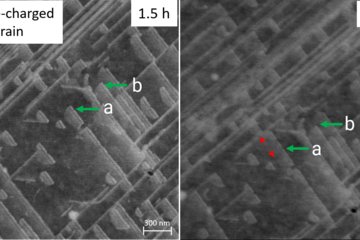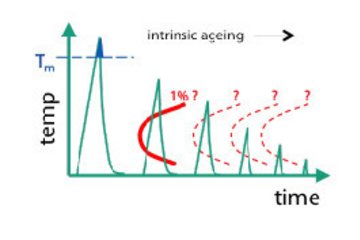All genres
621.
Teaching
Microstructures, Microscopy & Modelling. Lecture: SS 2018, RWTH Aachen, Aachen, Germany, April 09, 2018 - July 20, 2018
622.
Teaching
Microstructures, Microscopy and Modelling. Lecture: SS 2018, RWTH Aachen University, 2018-04 - 2018-07
623.
Teaching
Microstructures, Microscopy & Modelling. Lecture: SS 2016, RWTH Aachen, Aachen, Germany, 2017
624.
Teaching
Microstructures, Microscopy & Modelling. Lecture: SS 2016, RWTH Aachen, Aachen, Germany, 2016
625.
Teaching
Introduction to Quantum Mechanics in Solid-State Physics. Lecture: Masterstudiengang „Materials Science and Simulation“, WS 2015/2016, Ruhr-Universität Bochum, Bochum, Germany, October 01, 2015 - March 31, 2016
626.
Teaching
Microstructures, Microscopy & Modelling. Lecture: Masterstudiengang, SS 2015, RWTH Aachen, Aachen, Germany, April 01, 2015 - September 30, 2015
627.
Teaching
Introduction to Quantum Mechanics in Solid-State Physics. Lecture: Masterstudiengang „Materials Science and Simulation“, WS 2014/2015, Ruhr-Universität Bochum, Bochum, Germany, October 01, 2014 - March 31, 2015
628.
Teaching
Microstructures, Microscopy & Modelling. Lecture: Masterstudiengang, SS 2014, RWTH Aachen, Aachen, Germany, April 01, 2014 - September 30, 2014
629.
Teaching
Introduction to Quantum Mechanics in Solid-State Physics. Lecture: Masterstudiengang „Materials Science and Simulation“, WS 2013/2014, Ruhr-Universität Bochum, Bochum, Germany, October 01, 2013 - March 31, 2014
630.
Teaching
Microstructures, Microscopy & Modelling. Lecture: Masterstudiengang, SS 2013, RWTH Aachen, Aachen, Germany, April 01, 2013 - September 30, 2013
631.
Teaching
Introduction to Quantum Mechanics in Solid-State Physics. Lecture: Masterstudiengang „Materials Science and Simulation“, WS 2012/2013, Ruhr-Universität Bochum, Bochum, Germany, October 01, 2012 - March 31, 2013
632.
Teaching
Microstructures, Microscopy & Modelling. Lecture: Masterstudiengang, SS 2012, RWTH Aachen, Aachen, Germany, April 01, 2012 - September 30, 2012
633.
Teaching
Introduction to Quantum Mechanics in Solid-State Physics. Lecture: Blockveranstaltung, Ruhr-Universität Bochum, Germany, March 21, 2011 - March 25, 2011
634.
Teaching
Introduction to Quantum Mechanics in Solid-State Physics. Lecture: Masterstudiengang „Materials Science and Simulation“, WS 2011/2012, Ruhr-Universität Bochum, Bochum, Germany, October 01, 2011 - March 31, 2012
635.
Teaching
Microstructures, Microscopy & Modelling. Lecture: Masterstudiengang, SS 2011, RWTH Aachen, Aachen, Germany, April 01, 2011 - September 30, 2011
636.
Teaching
Moderne Computersimulations-Methoden in der Festkörperphysik. Lecture: Hands-on-Tutorial, Ruhr-Universität Bochum, Bochum, Germany, September 20, 2010 - September 24, 2010
637.
Teaching
Computerpraktikum: Moderne Computersimulationsmethoden in der Festkörperphysik. Lecture: Blockpraktikum, MPIE, Düsseldorf, Germany, September 20, 2010 - September 24, 2010
638.
Teaching
Microstructures, Microscopy and Modelling. Lecture: Lecture and Excercises, SS 2010, RWTH Aachen, Aachen, Germany, April 21, 2010 - July 14, 2010
639.
Teaching
Moderne Computersimulations-Methoden in der Festkörperphysik. Lecture: Lectures and Exercises, Ruhr-Universität, Bochum, Germany, October 12, 2009 - February 05, 2010
640.
Thesis - Diploma
Ab initio Berechnung von Phononenspektren in Systemen mit reduzierter Symmetrie. Diploma, Technische Fachhochschule Berlin, Berlin, Germany (2008)











